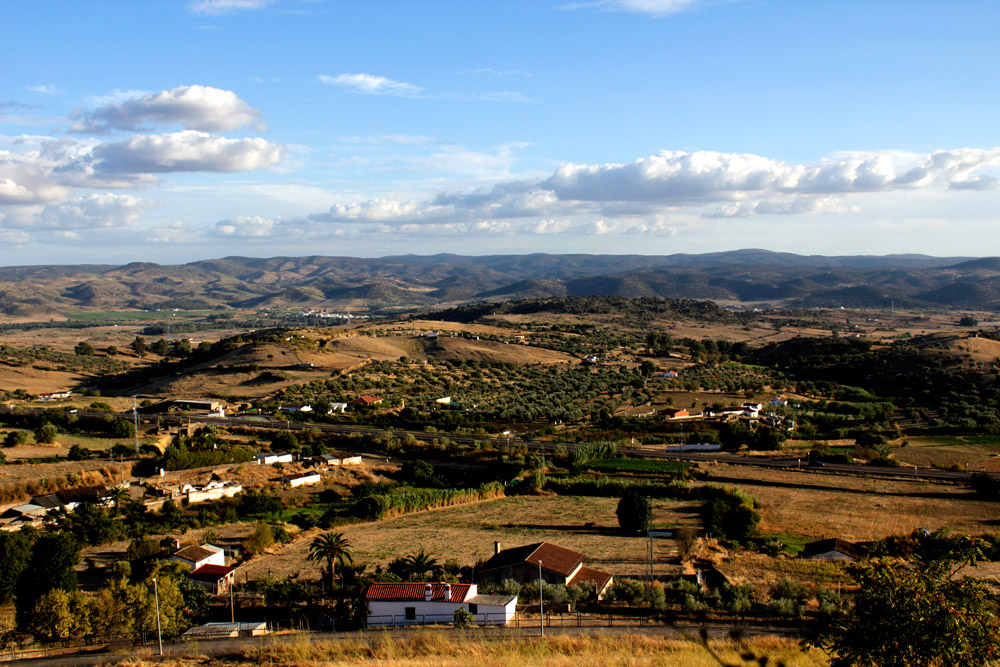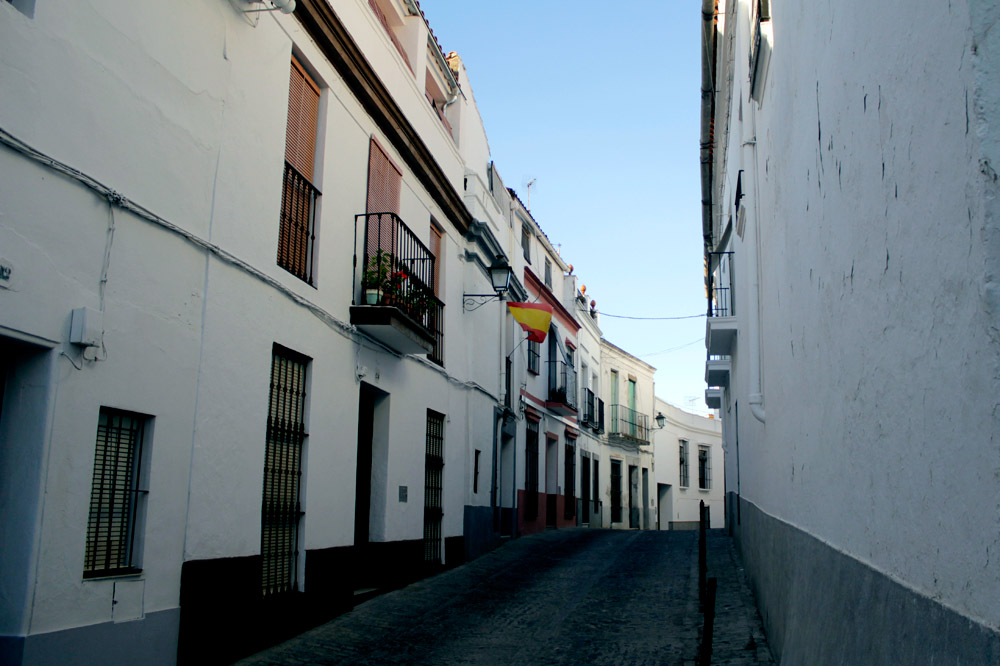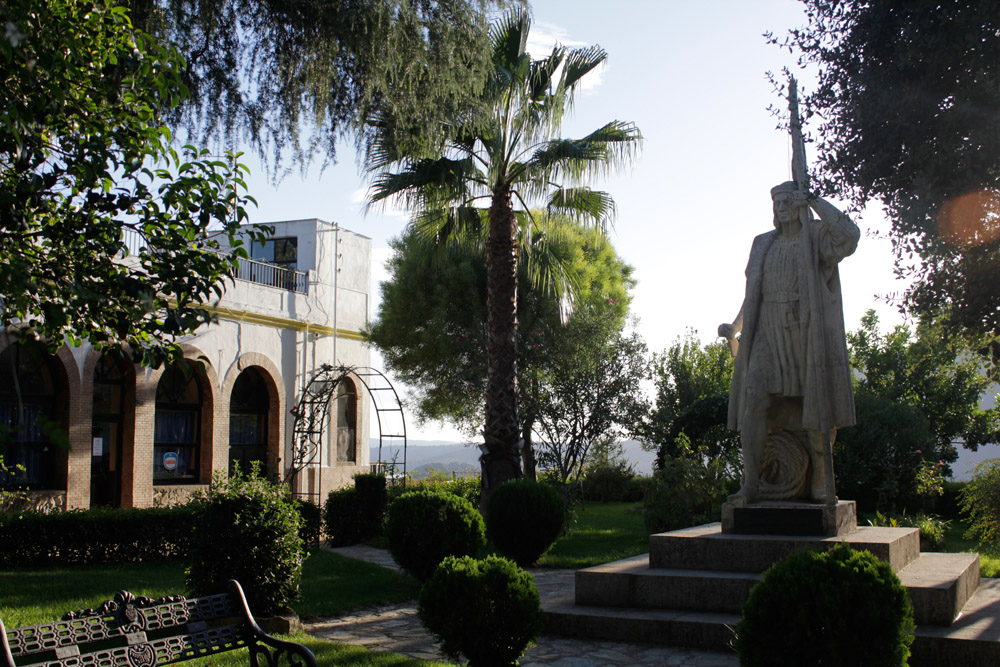Hi new Auxiliares. I have been getting a lot of messages and emails asking what it’s like to teach in Extremadura. What a wonderful opportunity you have and an adventure you are about to embark on! It’s hard because they don’t give you much information. You maybe have google mapped it, but you don’t even know your schools yet. But let me try to give you some insider information and answer your questions on my blog. Please add comments and suggestions so I can help you the best I can.
How are you enjoying Extremadura? How do you find it different than the other regions of Spain?
It’s great. The people are open, the weather is good and it’s affordable. It is very different than other regions of Spain. General stereotypes I’ve heard (each region has it’s own): the south generally is sunnier and friendlier. The north is rainier and the people are less friendly (although richer). I haven’t traveled to the North much, but my region is similar to Andalucía. Extremadura is huge, though, and the north is different than the south just in this region. I think it really comes down to the city or town.

It’s beautiful with endless rolling hills and countryside in southern Extremadura. It has a kind of quiet beauty that is really nice. A pretty sunset is always guaranteed. I live in a town with 10,000 people called Jerez de los Caballeros. Few people speak English here, which is a great opportunity to practice Spanish. If you want to be a part of things and to get involved (no matter how big or small your town), you will find your place.

There are discos here as well as bars. Friday is the night to go out here and the bars are always crowded, especially as the weather gets better.
I have reliable internet although no central heat. I am so happy now that we have moved out of the winter.
What kind of school do you teach in?
I teach in two different high schools and spend two days at each school. I get Fridays off. I get a ride with another teacher in the mornings and afternoons. They are about 20 minutes away from where I live. One of the towns has 3,000 people and the other has 5,000 people.
How many hours per week do you teach?
12 hours per week. I might have three or four classes each day spread out between 9a.m.-2:30 p.m. I often have to stay for the entire school day since I get a ride to my classes. In my downtime, I work in the teacher’s lounge. I bring my laptop and use the wifi. If classes are canceled, it means more downtime. Keep track of your work schedule. You are the one responsible for making it to the right classes, and often the teachers won’t remember.
Are you still enjoying your time in Spain?
More than ever! Initially when I moved here, I was nervous and felt homesick (I lived alone and didn’t meet many people). Now that I have explored my town and found great friends, I am often busy. I have been invited to a Matanza (pig slaughter), 12 hour paella party in the countryside and all-day tapas routes. These are all very unique experiences I wouldn’t have gotten in a bigger city in Spain. It feels like “real Spain” and is a very authentic experience. If someone invites me to do something, I go, and it is always an adventure.

How is your Spanish progressing?
Ask my friends. I think it is coming along. One guy told me my Spanish hadn’t improved in three months. That may be true, but I doubt it. I do live with an American, but as I go out more on the weekends, I speak Spanish all the time when I’m out (and in Spain, the nights are long). Since getting here when I knew very little Spanish to conversing with my friends at the disco or feeling comfortable to conduct interviews in Spanish, my Spanish has improved tremendously. I think that has a great deal to do with me living in a more rural area. The accent took a bit to get used to, but I have grown accustomed to it (even though I still have a thick American accent).
How easy is it to travel to Portugal?
Super easy. I take two buses and I’m in Lisbon. It’s about 3 or 4 hours away. Many teachers and friends take day trips to have lunch in Portugal. I’m close to the border so it’s simple. I highly recommend visiting Portugal.
How much have you traveled?
I have traveled a lot. Through Andalucía and Extremadura as well as to Portugal. I have visited Cordoba, Granada, Cadiz, Malaga, Rhonda, Jerez de la Frontera, Caceres, Madrid, Salamanca, Segovia, Toledo, Valencia, Marbella, etc. I have so far seen quite a bit of Spain. Can’t wait until it gets a bit warmer and I can go to the beach.
You’ve traveled so much! Do you know if all auxiliares have Fridays off or does it depend on your school and the schedule they give you?
It depends. Most auxiliares work four days a week. I work Monday-Thursday. My friend works Tuesday-Thursday and I have another friend who works Monday-Wednesday. (That’s rare. You are super lucky if you are in one of those schools.) Otherwise, my friend up north teaches on Fridays but gets Mondays off. What is most typical among auxiliares is getting Friday off which is good if you want to travel.
Do you find enough extra activities to participate in outside of teaching?
Yes. At first the down time killed me, but I started projects such as this blog, interviews with people of the town and took many photos and video. I also run each day and have private classes. I highly recommend having projects to get you involved in your town. There are painting, dance and aerobics classes you can participate in as well.
How have other Auxiliares’ experiences been who are serving the Extremadura region?
I think everyone I’ve talked to have enjoyed the experience, but not necessarily have enjoyed the teaching part so much. My friends are active in their towns and have traveled quite a bit within Spain. They also have made Spanish friends who often invite them to do things. The social part is great. The teaching part differs in each school.
Have you made any extra money by doing tutoring on the side?
I have, and I highly recommend doing it. It’s a fun way to make extra money. I put up signs at the beginning of year and at one point had an afternoon full of classes. Now I have fewer, but I am also working on my projects more.
Do you think it is likely that I would exit the program worse off financially than when I entered?
Oh money, money, money….
I came here with savings, but I haven’t blown through it all yet, which was good.
First month: depending on where you are, this is totally manageable. Some places you pay first month’s rent and a deposit. However we didn’t get paid until the end of November, roughly two months after we started the program. This wasn’t great. So I had to pay for a couple months rent and a deposit without getting paid yet. I also got paid in mid February for January (usually comes at the end of the month for the following month, but rarely happens on schedule). Some regions are better than others with timeliness of payments.
Food is affordable. I can buy fresh produce from the market for a good price and it’s so tasty. I haven’t made much savings, especially not with all the traveling I have done. On the stipend, you will be able to live comfortably, especially if you have any private classes. As for travel, flights are cheap from big cities (I fly out of Seville). I also take buses everywhere. They are nice charter buses. To go from my village to Madrid it’s 30 Euros and takes seven hours. Kind of pricey and long, but I don’t have a car so that’s my only option.
I think I will come out of this about even at the end of the program (not including the value of learning a language).
MORE QUESTIONS:
What else do you want to know?
I think if you decide to do the program, you will have a great year. Yes, there will be challenges, but there is nothing greater than taking a risk, learning some Spanish and having a great time while you do it. Teaching is 10 percent. The rest is the experiences you get outside of the classroom.